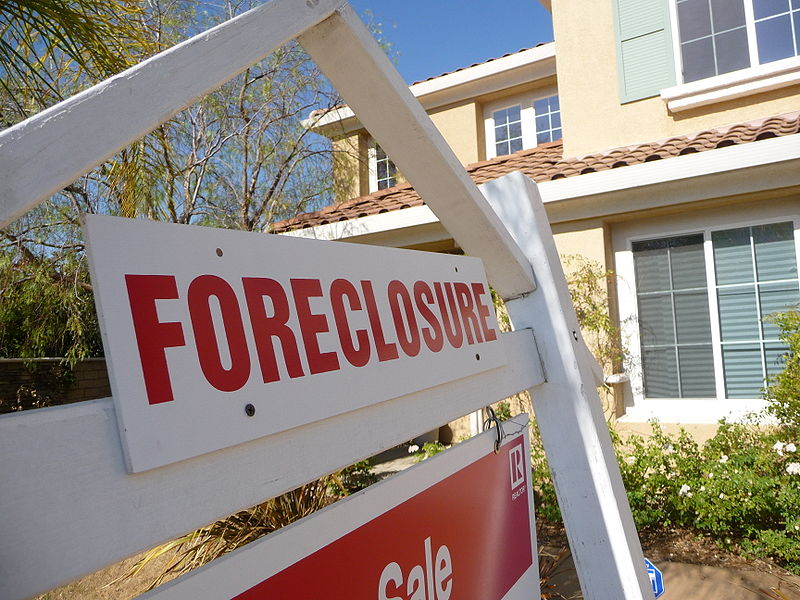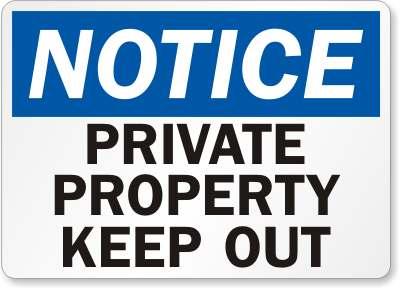Sovereign citizens and private property

Foreclosed homes are prime targets for sovereign citizens. Image by FlickreviewR. Used under a creative commons license.
Tabitha Gentry locked up the gate on her beautiful multi-million dollar home in East Memphis with a chain and padlock, alerting reporters that they were on private property.
Gentry didn’t acquire the property by getting a mortgage with a bank that’s regulated and protected by the federal government. She’s a sovereign citizen, and is part of a movement that lives by the idea that banks and the federal government are made up entities whose laws they don’t have to live by.
Money, as the legal tender of the federal government, is also worthless to sovereign citizens. Gentry laid claim to the foreclosed mansion by filing papers at the county clerk’s office claiming ownership.
Sovereign citizens are a loosely-organized movement, with no leaders and with most sovereigns operating independently, meeting only occasionally to share tips and exchange ideas. The ideology behind this brand of individual sovereignty is complex, the way conspiracy theories tend to be, and seems meant to obfuscate as much as validate their actions. The bottom line is that the federal, state and local governments have overstepped their jurisdictions and the whole system is null and void.

Because the federal government is invalid, then you don’t have pay taxes — or so the sovereign citizen logic goes. Image via IRS EIN. Used under a creative commons license.
There are an estimated 100,000 hard-core sovereign citizens in America, and perhaps 200,000 more who are dabbling in the idea. The FBI considers the sovereign citizen movement to be a national security threat. While Gentry’s occupation of he East Memphis house appears peaceful so far, and isn’t substantially that different from squatting, other sovereign citizens have taken their disdain for the government and police to more violent extremes.
The police often get the brunt of sovereign citizens’ ire. A routine traffic stop can turn into an existential tirade about the entire police forces’ illegitimacy. Sovereign citizens don’t believe in the cop’s right to issue them a ticket, or collect on it, and any attempt at arrest gets called a “kidnapping.”
In West Memphis, Arkansas, a pair of police officers found out just how far sovereign citizens are willing to defend their way of life. Sovereign father and son Jerry and Joseph Kane responded to getting pulled over by gunning down the police men with an AK-47. The pair were killed later that day in a shoot-out with police.
Aside from indulging in conspiracy theories and physical violence, sovereign citizens are known for filing massive amounts of paperwork. This may seem counter to their denial of the legitimacy of government, but rest assured that their aims are to further delegitimize the system. With ridiculous filings, sovereign citizens can clog up the system, drawing out cases against them for so long, or making them so complex that often, they can get the charges dropped.
The case can easily be made that paperwork is among their most powerful weapons. In Greensboro, North Carolina, they’re referring to it as paper terrorism. Sovereign citizens, with various grievances have filed multiple liens on government officials. According to the Guilford County Register of Deeds, “The Guilford County DA has a $800 million lien filed against him. Our Clerk of Court has an $800 million lien. Two local law firms both have $1 million liens. Bank of America has a $200 billion lien.”
Each lien means a sovereign citizens has filed for the right to collect on the property of each of those people, should they attempt to sell their house — and it’s not just a matter of paperwork. One judge who attempted to refinance his home was stymied when he found out that a sovereign citizen had a $70 million lien on him.
The conveniences of opting out of the social contract can seem pretty satisfying. Free houses, no paying taxes, bills or tickets. But anyone who’s ever used a road, a hospital or a public school should know, that social contract goes both ways. As Tabith Gentry exercises her self-declared right to claim the East Memphis home, she’s also evoking one of the oldest laws in the book — private property.

Even a sovereign citizen finds property laws useful. Image from MySafetySign.com.
Category: Property















